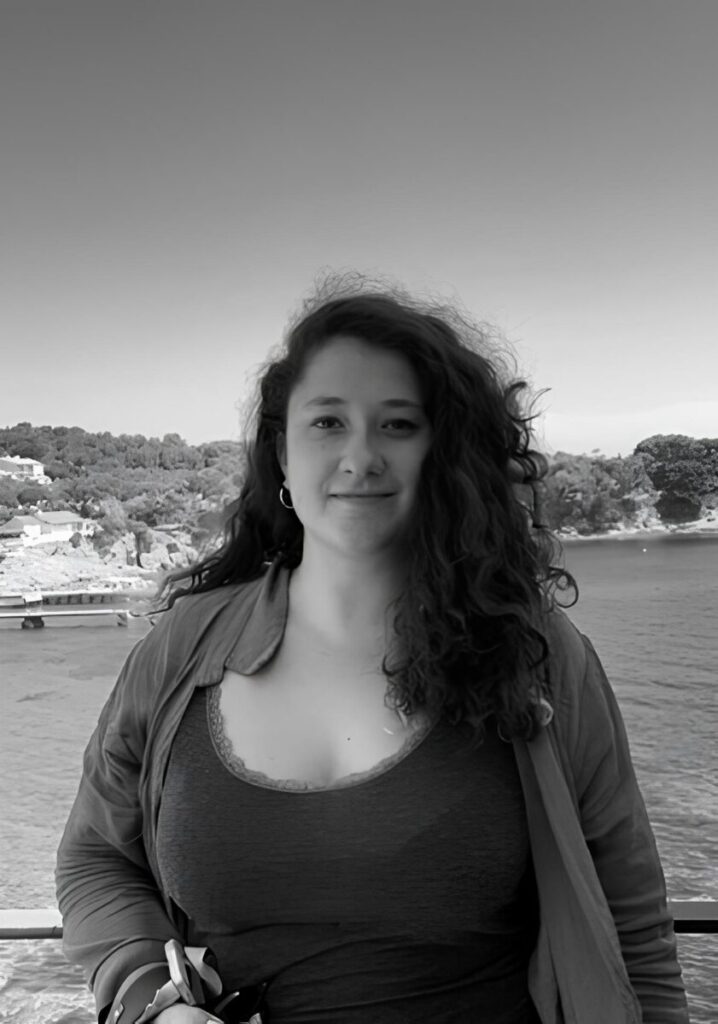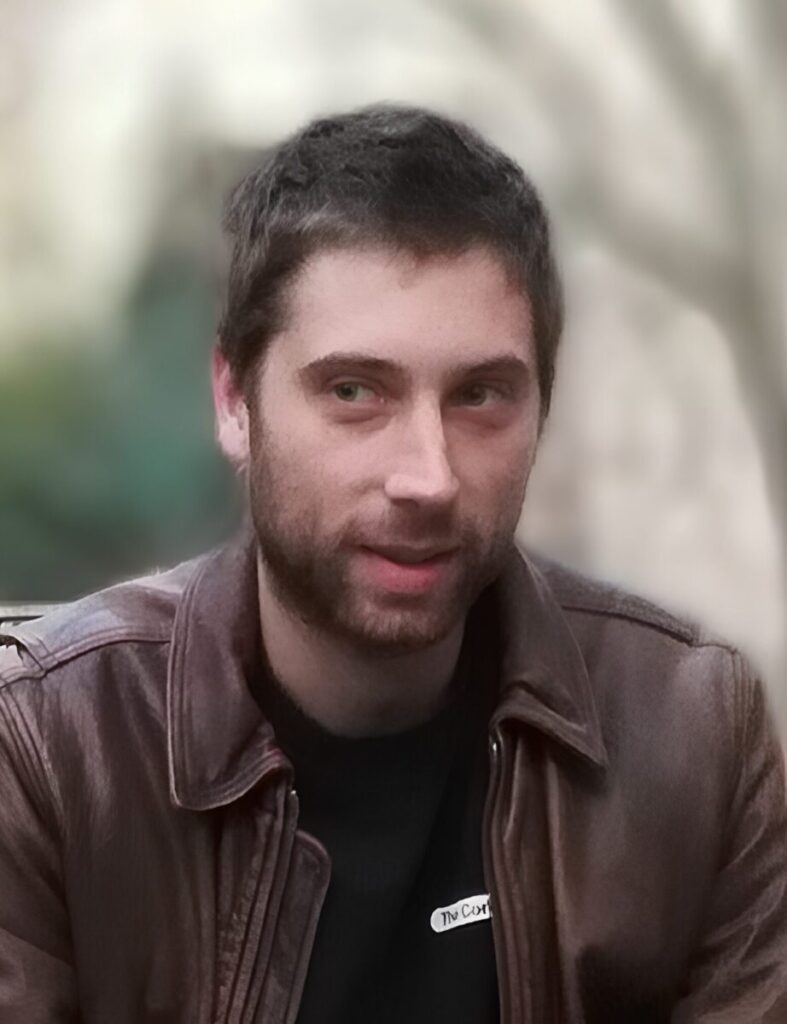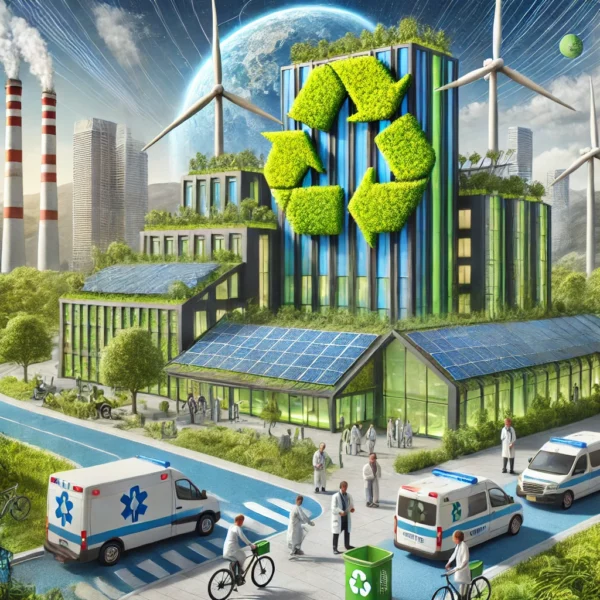In the context of the series of interviews regarding the missions set by the Assistance Publique-Hôpitaux de Marseille (APHM) to reduce health inequalities and access to care, including prevention, education, and support for illness to address Mediterranean challenges, a discussion takes place between a hospital practitioner faced daily with a question that has become crucial for this profession: how to provide care while limiting the environmental impact of medical practices?
Interview by Justine Viros, research engineer at Aix-Marseille Université, in charge of development for the Neede Méditerranée association, with Dr. Benjamin De Sainte Marie, hospital practitioner in Internal Medicine, co-director of the working group on ecology in hospital settings at the Assistance Publique-Hôpitaux de Marseille (AP-HM).
The Oxfam report from June 2024 has raised an alarm by highlighting an alarming consequence of climate change: the gradual loss of certain essential health rights. Indeed, environmental upheavals do not only affect our ecosystem; they also undermine our health system.
Dr. Benjamin De Sainte Marie is an internal medicine physician at the Timone hospital within the AP-HM (Marseille). This specialty has led him to be interested in the intersection between human health and environmental health.
Health and Pollution: A Shared Responsibility
Today, health professionals face a paradoxical reality: by providing care, they contribute to pollution. In France, the health sector is responsible for 10% of greenhouse gas emissions. This contradiction highlights a vicious cycle: by polluting, healthcare amplifies the environmental diseases they must then treat. For Benjamin De Sainte Marie, the responsibility of health actors goes beyond direct care: it also involves minimizing their environmental impact.
Recent publications, particularly in renowned journals such as the New England Journal of Medicine and The Lancet, emphasize this growing awareness. The WHO's figures are striking: 27% of current diseases are linked to avoidable environmental causes. In light of this, Dr. De Sainte Marie advocates for a more ecological approach to medicine, which could enhance the quality of care without compromising its effectiveness.
According to him, ecological health is not a hindrance to patient care. On the contrary, it offers a more comprehensive vision that integrates preventive practices (lifestyle, diet, mobility) into care. He recalls one of the founding principles of medicine: “Primum non nocere,” meaning “first, do no harm.” In this perspective, health ecology can become a means of avoiding iatrogenesis, the harmful side effects of medical treatments.
Concrete Initiatives: Reducing Medication Pollution
As part of his commitment at the Assistance Publique – Hôpitaux de Marseille (AP-HM), he co-leads a working group on ecology in hospital settings that explores several avenues to reduce the ecological footprint of care.
For example, some medications pollute significantly without providing real additional benefits for patients. He cites asthma treatments, where gas-containing devices (inhalers) pollute up to 30 times more than powder-based ones, despite their more widespread prescription. Furthermore, oral administration should be favored whenever possible, as intravenous treatments emit ten times more carbon and generate more waste.
He discusses the work of Ecovamed, which offers an innovative solution to calculate the carbon footprint of products from the chemical, biotechnology, and pharmaceutical industries to better understand and measure the ecological impact of these products, and thus, medications. However, this project faces obstacles: the opacity of pharmaceutical production chains complicates access to necessary data. Pharmaceutical laboratories are still reluctant to disclose this data, and sometimes they lose control of the production chain, limiting the knowledge needed for life cycle analysis, but initiatives are underway to overcome these barriers. Following this understanding of life cycle analysis, we could dream in the short term of developing guides and scores to guide physicians towards more eco-responsible prescribing.
The Oxfam report and recent climate events (floods, heavy rains, heatwaves, etc.) reveal an increasingly worrying reality: climate change directly affects health infrastructure. In Marseille, recent floods have limited the AP-HM's capacity to care for patients. In addition to infrastructure, the health system is also suffering from the consequences of medication shortages, which have increased by 1200% over the past ten years. Common medications like amoxicillin or paracetamol have become temporarily unavailable in recent years, partly due to resource scarcity.
“One Health”: Towards an Integrated Vision of Human and Environmental Health
Dr. De Sainte Marie advocates for a global awareness based on the concept of “One Health.” This principle rests on the interdependence between human, animal, and environmental health: by protecting biodiversity and stabilizing our ecosystem, we also protect our own health. This ecological approach to medicine aims to address the root causes of many current health problems.
To enhance his commitment, alongside his clinical practice, he is also preparing to pursue a PhD in sciences to better guide his peers towards more ecological medicine. The goal of his research: to provide better care while polluting less and limiting the emergence of pollution-related diseases.
Health and ecology are therefore not antagonistic; on the contrary, ecology can help strengthen healthcare while reducing the environmental footprint of medical practices. Initiatives like those led by this physician illustrate a new path for medicine, where prevention and ecological commitment unite for comprehensive and sustainable care.

Justine Viros - Scientist specializing in environmental transition, Mediterranean forest, and forest-atmosphere chemical interactions in the context of climate change. She currently holds a position as a research engineer within the Interdisciplinarity mission at Aix-Marseille Université, where she is in charge of development for the Neede Méditerranée association. She has notably participated in writing the application of Aix-Marseille Université in partnership with Neede for the creation of a UNESCO chair titled “Education for Environmental Transition in the Mediterranean.”

Dr. Benjamin De Sainte Marie - Hospital Practitioner in Internal Medicine, CHU Timone, AP-HM, and future PhD candidate in Health Ecology. He specializes in autoimmune and autoinflammatory diseases, and he is notably the reference physician for adult thalassemia and a specialist in IgG4-related disease, inflammatory myopathies, and VEXAS syndrome. He participates in the working group on ecology at AP-HM and has co-organized several events on this theme, including a training day on eco-design of care in 2024.
